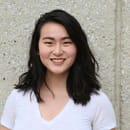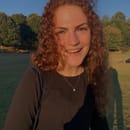Growing up, I hated my eyes. They represented everything that made me different from my white classmates and immediately told everyone that I was Chinese. They were also often the main focus of ignorant questions and childhood bullying. Can you even see out of your eyes? They’re so dark it looks like you don’t have pupils. Could contacts even fit in your eye? And of course, Now I look like you, said while pulling the corners of their eyes back to look like slits.
These taunts and actions stuck with me for most of my childhood and drastically affected the way I saw myself and the way I wanted others to see me. When I smiled for photos I would try to widen my eyes as much as possible. Once I started wearing makeup I would try to make a crease so it looked like I didn’t have a monolid. And sometimes I would convince myself that people couldn’t even tell I was Asian when they saw me.
These defense mechanisms were ingrained in me based on the society we live in. When I was younger, there were barely any East Asians on my screen and no one seemed to have eyes like mine. Every beauty standard was based on white features: how to make your blue eyes pop, how to get that wide-eyed doe look, how to get rid of puffy under eyes. Every goal seemed to go against what I naturally had. And then, when the fox-eye makeup look began trending, it was a bit like a slap in the face. Suddenly, the same people who had me self conscious about my eyes were trying to emulate them.
My journey of loving my eyes truly began when I came to Emory. It was one of the first times that I was surrounded by people with eyes that looked like mine, and it made me realize that I was not strange or exotic. I looked at people with monolids or almond shaped eyes and thought they were so beautiful, not despite their eyes, but because of them. If these eyes looked so beautiful on other people, then maybe they didn’t look as bad on me as I thought they did. The recent surge of mainstream Asian celebrities has also broadened our beauty standards and shown that Asians can be beauty and sex symbols without catering to Eurocentric ideals.
I’ve also begun to recognize that my eyes are not my defining characteristic. They are not the only thing people see about me, they are simply one part of my whole person. I thought it was the world that was placing so much emphasis on my eyes, but really it was me. That’s not to say that people don’t still make racist comments about my eyes or Asian eyes in general, because trust me, they do. But the difference is that I no longer let their ignorant beliefs color my perception of myself. I still have days where I feel self conscious, but I remind myself that my eyes make me unique; not because of their shape or color or width, but because they belong to me. Your eyes do so much for you, it would be a shame to waste energy hating them.
Recently I came across a children’s book that was published this year called Eyes That Kiss in the Corners by Joanna Ho. This book is about a young Asian girl who “notices that her eyes look different from her peers” but learns to love her eyes that kiss in the corners because of the history and beauty that they symbolize. I’m gonna be honest, when I saw this book, with its beautiful illustrations and personal connection, I felt a bit emotional. I was thinking about all the times that I hated my eyes and wished they were different. I longed for a book like this in my childhood and it makes me so happy to think that young Asian children can read this book and hopefully find a sense of self-love from their eyes.
Learning to love ourselves is not an easy journey, especially when society seems to be fighting against us along the way. But one day I hope we can all learn to love our eyes for the uniqueness and beauty that they provide.



